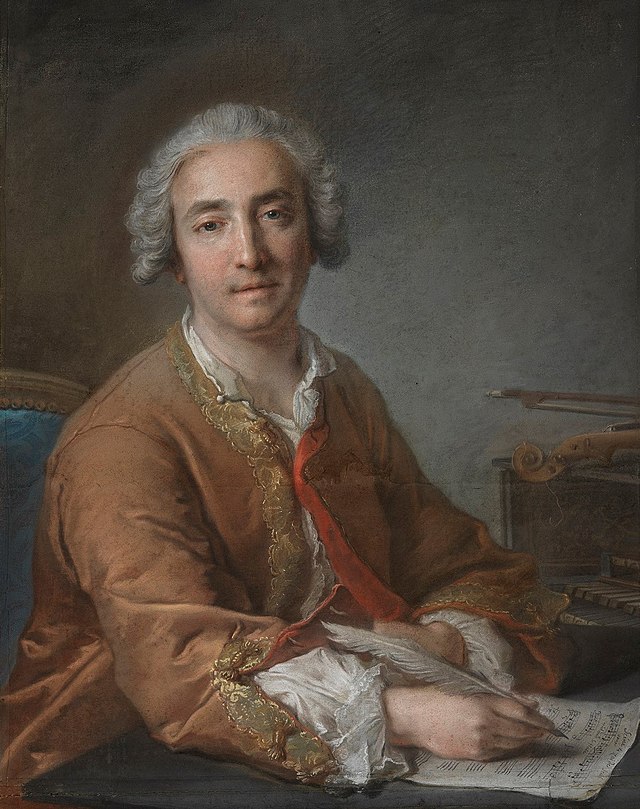Top Qs
Timeline
Chat
Perspective
Joseph-Nicolas-Pancrace Royer
French composer From Wikipedia, the free encyclopedia
Remove ads
Joseph-Nicolas-Pancrace Royer (12 May 1703 – 11 January 1755)[1] was a French Baroque composer, harpsichordist, organist, and administrator.[2]

Biography
Born in Turin, Royer went to Paris in 1725, and in 1734 became maître de musique des enfants de France, responsible for the musical education of the children of the king, Louis XV. Together with the violinist Jean-Joseph de Mondonville, Royer directed the Concerts Spirituels starting in 1748. Royer was at the Paris Opéra during the 1730s and the 1750s, writing six operas himself, of which the best known is the ballet héroïque Zaïde, reine de Grenade. In 1753, he acquired the prestigious position of music director of the chambre du roi (the king's chamber), and in the same year was named director of the Royal Opera orchestra. He died in Paris in 1755, at the age of 51.
Remove ads
Works
Summarize
Perspective
Royer is particularly known for his often extravagant and virtuosic harpsichord music, especially "La Marche des Scythes", which ends his first book of harpsichord pieces.
Operas
Other works

- 1746: Premier livre de pièces de clavecin (1746)
- La Majestueuse, courante
- La Zaïde, rondeau (Tendrement)
- Les Matelots (Modérément)
- Premier et deuxième tambourins, suite des Matelots
- L'Incertaine (Marqué)
- L'Aimable (Gracieux)
- La Bagatelle
- Suitte de la Bagatelle
- La Rémouleuse, rondeau (Modérément)
- Les tendre Sentiments, rondeau
- Le Vertigo, rondeau (Modérément)
- Allemande
- La Sensible, rondeau
- La marche des Scythes (Fièrement)
- La chasse de Zaïde (1739)
- 1746: Ode à la fortune, text by Jean-Baptiste Rousseau, (first performance 25 December 1746, Concert Spirituel)
- 1751: Venite exultemus, motet (first performance 18 December 1751, Concert Spirituel)
Remove ads
Recordings
- Vertigo - Jean Rondeau (harpsichord), a collection of pieces from Royer's first book of harpsichord pieces and from contemporary harpsichord composer Jean-Philippe Rameau, 2016
- Complete Harpsichord Music – Yago Mahugo (harpsichord), OnClassical (OC67B) licensed for Brilliant Classics (BC 94479), 2013
- Pièces de Clavecin – William Christie (harpsichord), Harmonia Mundi France (HM1901037), recorded 1979, CD-release 1992 (out of print)
- Ode de la Fortune 1746, Guillaume Durand (singer), Almazis-Iakovos Pappas dir. Iakovos Pappas, Jean-Baptiste Rousseau Poésies mises en musique.MAG 358.427, 2020).
Notes
External links
Wikiwand - on
Seamless Wikipedia browsing. On steroids.
Remove ads
